[Warning: contains SPOILERS for Lincoln and Django Unchained.]
Finding the perfect final scene for a film is a difficult task. Few films reach the kind of crescendo of pacing, timing, climax and overall satisfaction of films like Casablanca, the final sequence of which is possibly the greatest ending of all time. These days, though, it’s quite common to hear complaints about movies ending way after they presumably should. Steven Spielberg’s Lincoln and Quentin Tarantino’s Django Unchained have both been criticized for reaching a great ending scene only to fly past it with more tacked on narrative. The movies have too many endings! Is that really true, though?
In her very positive review of Lincoln, Slate film critic, Dana Stevens, expressed her issues with the ending of the film:
I admire Spielberg’s choice to conclude on a note of indirection and discretion: Ending on a tableaux vivant of the well-known facts of that night at Ford’s Theatre might have been both dramatically inert and crass. But I think the film should have ended even earlier, on a long shot (beautifully framed by cinematographer Janusz Kaminski) of the lanky, stooped president walking alone down a hall of the White House, on the way to take his wife to the theater on April 14, 1865, five days after ending the bloodiest war in the nation’s history. We all know what happened next—and given how much we love this man we feel we’ve come to know, it’s sad enough just thinking about it.
It’s a sentiment echoed by many, including Samuel L. Jackson, of all people, who himself features heavily in the equally criticized final act of Django Unchained. Regarding Lincoln, he said to the LA Times, “I don’t understand why it didn’t just end when Lincoln is walking down the hall and the butler gives him his hat. Why did I need to see him dying on the bed? I have no idea what Spielberg was trying to do.”
I’d posit that Jackson’s last sentence shows the real problem. Watching hundreds or thousands of films over a lifetime conditions people, even seasoned critics, to conventions in staging and pacing that limit imagination. It’s unavoidable. When I watched Lincoln for the first time, even I was momentarily expecting it to end on that beautifully silhouetted hallway shot with Honest Abe off to Ford’s Theatre. It comes at good place; it looks like a good final shot; it feels like a farewell. Then the film continues for another few minutes. It wasn’t the film demanding to end at that point, though. It was simply my sense for when movies conventionally do end. But Lincoln isn’t a conventional film and it doesn’t go for the conventional ending.
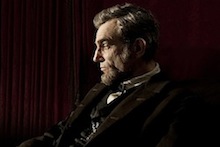 Had Spielberg and his screenwriter, Tony Kushner, wanted to make a film purely about Abraham Lincoln, the man, they might have left things on that hallway shot—the actual assassination being too painfully horrid. Still, that wasn’t the kind of story they were telling. Lincoln, instead of being a standard biopic, is more accurately a deconstruction and reassembling of an American mythic figure. It’s about a person who understands his place in history and knows his obligations, and more than that, he’s mindful of what generations down the road will think of his accomplishments. While the film might deliver a very human portrayal of Lincoln, it does not ignore his mythic status, and as such it links the humanity to the myth, giving it much deeper meaning. Spielberg takes what has become a simplistic myth and adds important human complexity. It wasn’t some unknowable god who abolished slavery and saw America through the Civil War. No, it was a man of mythic stature.
Had Spielberg and his screenwriter, Tony Kushner, wanted to make a film purely about Abraham Lincoln, the man, they might have left things on that hallway shot—the actual assassination being too painfully horrid. Still, that wasn’t the kind of story they were telling. Lincoln, instead of being a standard biopic, is more accurately a deconstruction and reassembling of an American mythic figure. It’s about a person who understands his place in history and knows his obligations, and more than that, he’s mindful of what generations down the road will think of his accomplishments. While the film might deliver a very human portrayal of Lincoln, it does not ignore his mythic status, and as such it links the humanity to the myth, giving it much deeper meaning. Spielberg takes what has become a simplistic myth and adds important human complexity. It wasn’t some unknowable god who abolished slavery and saw America through the Civil War. No, it was a man of mythic stature.
The ending of the film—showing Tad Lincoln’s reaction to the news of his father’s shooting, followed by a shot of a distraught Mary Todd and a scene of Lincoln’s cabinet in mourning around his lifeless body, then transitioning with the shot of a flame to Lincoln delivering the incredible words of his Second Inaugural Address—is what raises Abraham Lincoln from a mere man to an immortal. Where the hallway shot would leave Lincoln as something of a friendly ghost to history, the subsequent scenes paint a broad portrait of what his death meant and what his legacy would be, even using his own beautiful words to close out.
Of course, many might argue that the problem here isn’t what those final scenes convey, but that the rhythm of the film and shot compositions actively suggest the film might have been better suited to ending earlier, even if only for a more satisfying visceral effect. It’s not a point to be taken lightly, as rhythm is often crucial to how films best relate their ideas. It may, in fact, be true that Lincoln, despite having a thematically satisfying ending, lessens its own impact by not building to its actual final scene in the best way.
This argument is probably much more applicable to Django Unchained. The reasoning for the final set of scenes following the first big shootout is clear. This is Django on his own, using what he’s learned from his travels with Dr. King Schultz, getting the upper hand on the white people around him, saving his wife and exacting his vengeance. It’s necessary character work.
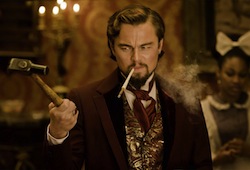 All that being said, the film gets in its own way with even more gusto than Lincoln did. The first shootout, sparked by the killing of Leonardo DiCaprio’s Calvin Candie, is so big, so brash and so climactic that it very nearly satisfies the audience lust for vengeance. It’s easy to watch that sequence and feel that Django could simply have come out the winner of the firefight and the movie would end happily. This wouldn’t really be the most rounded conclusion with respect to his long character arc, but it would’ve worked as visceral cinema. Had Tarantino scaled back that sequence and maybe made the final showdown more bombastic instead—much like the quick and dirty shootout in the basement in Inglourious Basterds being followed by the much more insane violence of the final chapter—he would’ve achieved a better narrative flow, leading to less criticism.
All that being said, the film gets in its own way with even more gusto than Lincoln did. The first shootout, sparked by the killing of Leonardo DiCaprio’s Calvin Candie, is so big, so brash and so climactic that it very nearly satisfies the audience lust for vengeance. It’s easy to watch that sequence and feel that Django could simply have come out the winner of the firefight and the movie would end happily. This wouldn’t really be the most rounded conclusion with respect to his long character arc, but it would’ve worked as visceral cinema. Had Tarantino scaled back that sequence and maybe made the final showdown more bombastic instead—much like the quick and dirty shootout in the basement in Inglourious Basterds being followed by the much more insane violence of the final chapter—he would’ve achieved a better narrative flow, leading to less criticism.
The way Django Unchained plays out is viscerally important, though. Having that first showdown be so overblown only to have Django fail to extricate himself from the situation is essential to the film’s reversals of genre tropes. In the scenes that follow we come to find that the qualities that make Django a true badass of Western and Blaxploitation cinema have less to do with his abilities in a shootout than with his ability to outsmart his foe. The bloodbath is big and epic and awesome, but ultimately can’t win the day. It’s only when Django outthinks his captors that we get to see him waiting upstairs for Samuel L. Jackson’s Stephen, finally in the position of power.
This structure creates a bit of a rollercoaster effect, with the big drop coming early, only to seemingly peter out by the end, but the truth is Tarantino simply took an unconventional route. That visceral effect says a lot about Django’s journey despite potentially coming off as structurally lopsided. A second viewing, though, makes the third act come off as far less jarring, probably because the bucking of convention is now expected.
The endings of both Lincoln and Django Unchained can certainly throw people. To some, the endings feel wrong, like the directors got too indulgent and just couldn’t bear to close their films at the logical points. In both cases this just isn’t true. These movies end where they do for very specific reasons. They are purposefully designed and thoughtfully structured. Sometimes, as an audience, it’s important to recognize that what “feels” right or wrong may have more to do with our own expectations and familiarity with filmmaking conventions than with what actually works for the films in question. It’s easy to say that Spielberg and Tarantino ended their films later than we felt was right, but it’s much more critically engaging to instead seriously consider what they gained from being longer.

















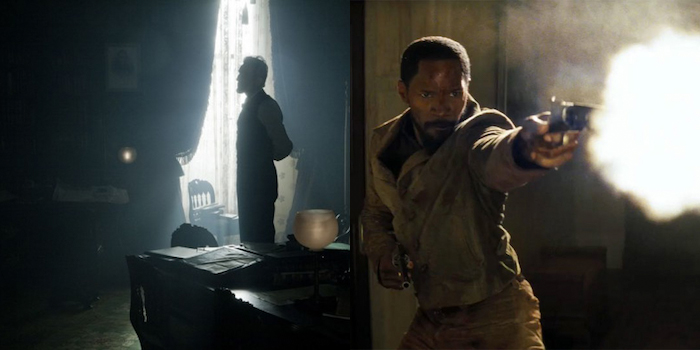
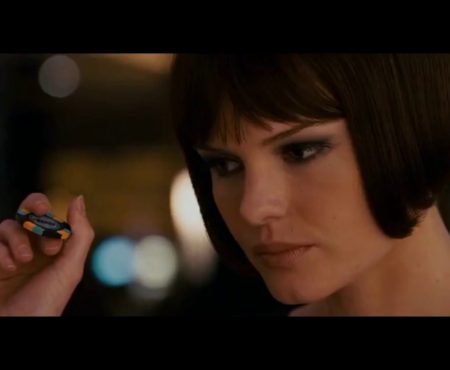

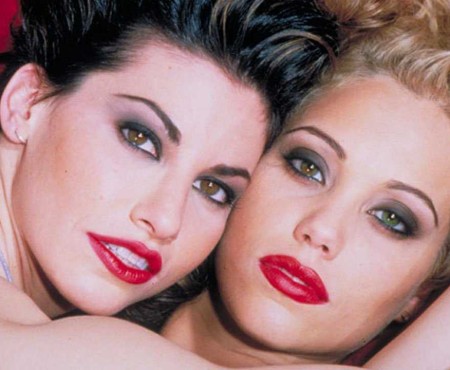
13 thoughts on “Defending the Endings of ‘Lincoln’ and ‘Django Unchained’”
Your certainly correct sir. I would saw however that the criticism fits more for Lincoln than Django. I feel that Django needed to go that route for one reason and one reason only. In that scene (with Tarantino) when Django liberates himself to head off and get his wife back there’s a shot of a slave looking knowingly at Django as he rides away. That shot serves as complete affirmation of the film as a blaxsplotation film… it proves that this isn’t just another Django movie or another western or even another Tarantino film… but a blaxsplotation movie which does what all great films of the genre does. It takes a black character and makes him into a hero to all other black characters. Which is what Django became in that moment.
Yes yes yes, agreed on all counts.
Your thesis seems about accurate, pending you do find ‘Lincoln’ and ‘Django Unchained’ to be unconventional films, thus the reason they don’t have conventional endings.
I’m still very mixed on QT’s latest.
Yeah, there’s a degree to which it’s really just a matter of whether you’re willing to go along with what the film is giving you. Much as I think Django is excellent, it doesn’t pack quite the punch of a film like Inglourious Basterds or Kill Bill Vol. 2.
Yeah, there’s a degree to which it’s really just a matter of whether you’re willing to go along with what the film is giving you. Much as I think Django is excellent, it doesn’t pack quite the punch of a film like Inglourious Basterds or Kill Bill Vol. 2.
I haven’t seen Django yet, but I do feel like the ending of Lincoln was a bit awkward. I liked the way that it cut from his death to the speech of the inauguration. That was handled very well. The strange part for me was showing a theater that most people would assume was Ford’s Theater, then having us realize it’s his son in another spot. I understand the reasons for not showing the assassination, but why even show his son at the theater? It didn’t hurt the movie for me but was just a questionable choice at a key point. Thankfully, the final scenes make up for it.
The bit with the theatre is a bit of a cheat, but I think it works because it focuses the attention of the audience on the horror of the situation for Lincoln’s immediate family. One big problem with that, admittedly, is I think that kid was kind of an awful actor. Moment still worked on me, though.
Well stated, Corey. I liked the ending of Django more than most and the aftermath of the Candie shooting is Django solo. We needed that for the ultimate arc to work.
Thanks. The pacing of that ending is a bit weird, but I think the impact is fully there.
DJANGO ends the way it does for other reasons, too…hopefully I’ll get into those in a piece I’m writing on the film as extended historical metaphor.
TEASE!
Pingback: The Terrence Malick Retrospective: 'The Tree of Life' | Movie Mezzanine
Django Unchained – I Like the Way You LIE Boy ( Not YOU – Tarantino)
by John Kennedy McCray
Django Unchained bothers me for so many reasons beyond the ‘N’ word.
The ‘M’ words bother me more (Mass-Minded, Mediocrity masquerading as a
Monumental Movie for Money!)
I took the liberty of interviewing a few people right after we saw
the film. I still haven’t spoken directly to anyone who could actually,
reasonably and/or intelligently explain if or why they liked Django.
Even further, to submit that it changed their lives in a positive way or
is relevant to their lives at all was out of the question.
It could be simply coincidental that killings in the US have escalated
(particularly but not exclusively in Urban communities) since the
movie’s debut. It could also be coincidental that many people went to
see it in record numbers hoping to support Kerry Washington, Jamie Fox
and Samuel L. Jackson and to hopefully see them in powerful award
winning roles that elevated their place in film history. Unfortunately;
as it was written, their roles were primarily bit characters. Jamie’s
Django showed no depth, Kerry’s Broom Hilda barely spoke (I had to watch
Scandal just to get that character out of my system) and Samuel
Jackson’s was a caricature-of-a-caricature from a Boondocks character
made people laugh out loud, but at what? None of them got a nomination
for anything significant (and honestly they shouldn’t have – they were
given very little to work with). Yet, Tarantino gets awarded a “Best
Screenplay” OSCAR? Really?
I guess when you can take a censored ‘C’ movie from 1966, turn it
into a ‘B’ movie MONEY-MAKING MACHINE fifty years later by casting ‘A’
List Actors and Advertising to sell it as the greatest thing since ROOTS
and sugar cane…you should have won something. The way he has so
eloquently written in the ‘B’, ‘N’ and ‘F’ words, celebrated the most
dark, psychopathic violence and has borrowed 20 year old scripts – cut
them up, thrown them on the floor and let studio interns put a
screenplay together for him for the most part throughout his ‘artistic’
career…The Academy Awards should create a new award just for him…’The
Pimp Award’. Simply because that’s what pimps do. Just asks anyone whose
been pimped. They really can’t tell you why they were there (Reference:
My earlier Django Interviews). Can you see him decked-out in Urban Pimp
Gear that could make Huggy Bear blush (Just checkout his attire when on
a ‘urban’ show doing interviews lately and when he’s on a ‘non-urban’
show past and present)? Simply because that’s what pimps do.
Then again…Hollywood already owns that award.
Watch – http://www.youtube.com/watch?v=5Q5EVGUop58